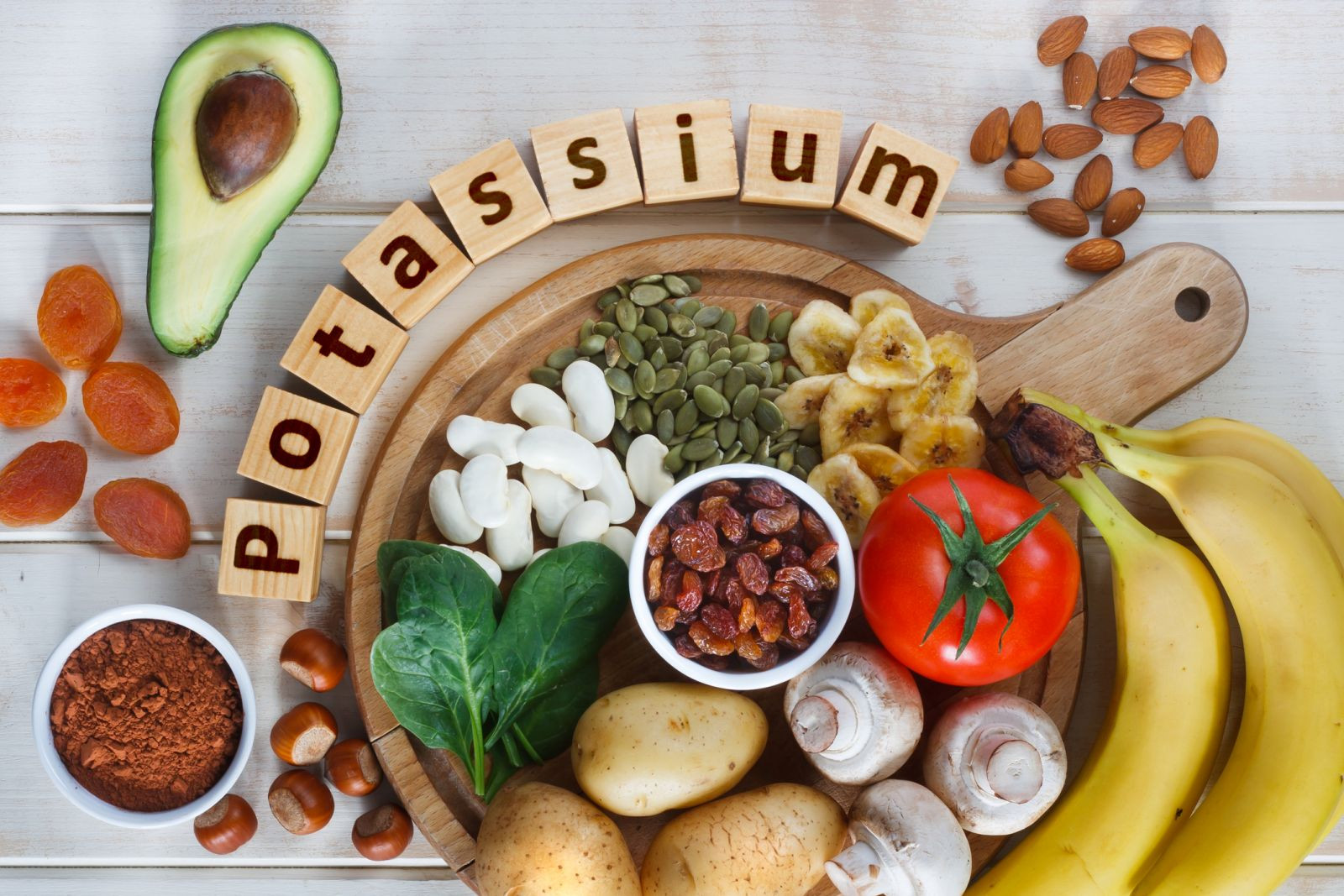
Key facts
- Potassium is a mineral that is essential for all of the body’s functions.
- It helps your nerves, muscles heart to function well, and also helps move nutrients and waste around your body’s cells.
- Most people get enough potassium for their daily requirements through their diet.
- Both high and low levels of potassium in the body can be dangerous.
- Only take potassium supplements as recommended by your doctor.
What is potassium?
Potassium is a mineral that is essential for all of the body’s functions. It helps your nerves, muscles and heart to function well, and also helps move nutrients and waste around your body’s cells.
What does potassium do?
Potassium has many important functions:
- It allows the nerves to respond to stimulation and muscles to contract (tighten), including those in the heart.
- It reduces the effect of sodium (present in table salt) on blood pressure.
- It helps move nutrients into cells, and waste products out of cells.
Having the right amount of potassium helps:
- control blood pressure
- protect against strokes and cardiovascular disease
- protect against osteoporosis
- prevent kidney stones
Your kidneys control potassium levels in your body and get rid of excess potassium in urine. If your kidneys do not work properly, potassium may build up in your blood. This can be a very dangerous condition, because it may cause your heart to beat irregularly or stop beating (cardiac arrest).
Can I have too much or too little potassium?
The amount of potassium in the body is affected by:
- the climate
- your level of physical activity
- using diuretic medicines (water tablets)
- how much sodium you consume (linked to how much table salt you use in food)
An imbalance of potassium can lead to health problems.
Low potassium
Low potassium (hypokalaemia) can lead to symptoms including:
- weakness and tiredness
- muscle cramps
- constipation
- abnormal heart rhythms (arrhythmias)
There are many causes of hypokalaemia. Common causes include taking diuretics (fluid tablets) and dehydration, for example due to vomiting, diarrhoea or excessive sweating.
Occasionally, people may have low potassium because they don’t eat enough foods high in potassium.
Read more on potassium deficiency.
High potassium
A high potassium (hyperkalaemia) is a serious and potentially life-threatening condition. Your doctor might discover you have high potassium through blood tests you had to explain or monitor another condition.
If you have unusually high levels of potassium, you may feel weak and tired, feel nauseous and have an abnormal heart rhythm.
Hyperkalaemia has many possible causes. Most commonly, it is caused by kidney disease or taking medicines that decrease the amount of potassium the body removes via the kidneys.
If you have these symptoms and believe your potassium levels might be high, contact your doctor immediately. They can check your potassium levels with a blood test.
How much potassium do I need?
How much potassium you need depends on your age, sex and stage of life:
| Stage of life | Adequate intake for potassium (milligrams per day) |
|---|---|
| 0 to 6 months | 400 mg/day |
| 7 to 12 months | 700 mg/day |
| 1 to 3 years | 2,000 mg/day |
| 4 to 8 years | 2,300 mg/day |
| 9 to 13 years | |
| Males | 3,000 mg/day |
| Females | 2,500 mg/day |
| 14 to 18 years | |
| Males | 3,600 mg/day |
| Females | 2,600 mg/day |
| Adult men | 3,800 mg/day |
| Adult women | 2,800 mg/day |
| During pregnancy | 2,800 mg/day |
| While breastfeeding | 3,200 mg/day |
Source: Eat for health
Because having too much potassium can affect your health, only take a potassium supplement if your doctor prescribes one. Babies under 12 months can get all the potassium they need from breast milk, formula and food.



